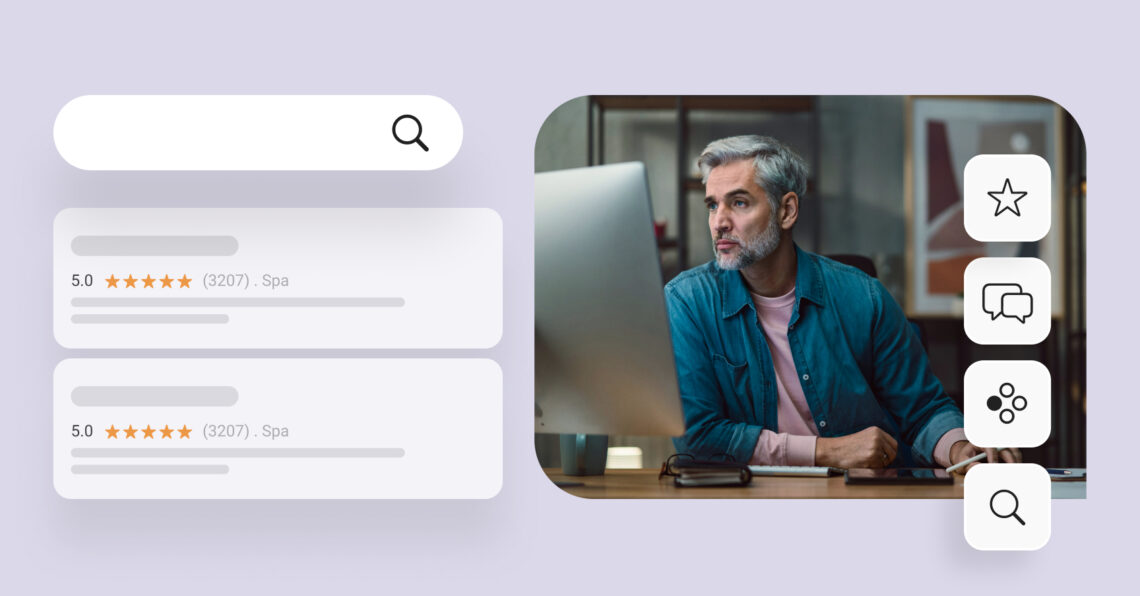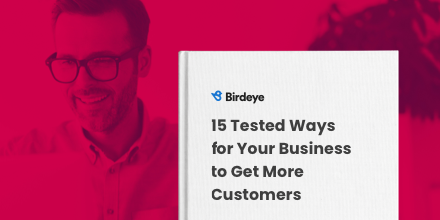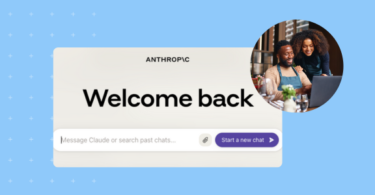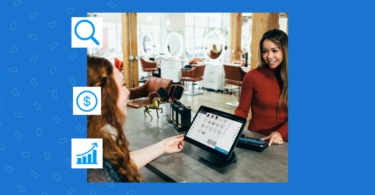Decision paralysis is increasingly prevalent among retail customers, overwhelmed by the vast array of options available in the market. Without a unique selling proposition, businesses struggle to stand out and grow. However, the right retail marketing platform can be a game-changer, enhancing brand visibility, customer experience, and revenue.
While there are numerous marketing tools available for retail stores, a comprehensive platform simplifies operations and optimizes costs.
In this article, we’ll delve into the benefits of a retail marketing platform and provide guidance on selecting the right one for your business. We’ll also share examples to help you set up your location-based retail business for success.
Table of contents
- What does a retail marketing platform do?
- Key benefits of retail marketing platforms
- Feature of the right retail marketing platform
- Retail marketing platform examples for multi-location businesses
- Frequently asked questions on retail marketing platforms
- The right retail marketing platforms can uplift retail businesses
- Transform your multi-location retail business with Birdeye
What does a retail marketing platform do?
A retail marketing platform simplifies and enhances the marketing efforts of a retail business with multiple locations. Its functions include managing local SEO rankings, business listings, social media, customer engagement, and feedback.
A unified retail marketing software allows multi-location businesses to centralize their marketing operations and gain a comprehensive view of customer experience management.
In addition to the 4Ps of marketing - Product, Pricing, Place, and Promotion - retail marketing needs People and Presentation. So, an ideal retail marketing platform helps you connect with more people and present your brand better. By combining customer engagement with experience tools, you can create a powerful synergy that drives results.
Key benefits of retail marketing platforms
A comprehensive retail marketing platform helps businesses maintain branding consistency across all channels, improve online reputation, boost customer engagement, personalize marketing campaigns, and improve marketing efficiency to maximize ROI.
Let us take a closer look at how retail marketing platforms benefit businesses.
Branding consistency
A retail marketing platform with a centralized dashboard enables businesses to seamlessly monitor and manage multiple listings, connected sites, and social media platforms from a single dashboard. This ensures branding consistency across all customer touchpoints, which is crucial for large retail businesses.
Online reputation management
No matter where you meet your customers, sales begin by reading online reviews. Birdeye’s study shows that customers check online reviews over 65% of the time before purchasing. Also, our studies show that 87% of consumers avoided buying from businesses with recent negative reviews.
Retail marketing tools with review monitoring and listing monitoring functionalities come in handy. They help businesses stay ahead of the conversation by:
- Generating positive customer reviews
- Monitoring and responding to negative customer reviews
- Reporting fake reviews
- Sharing positive reviews on relevant marketing channels
Omnichannel customer engagement
Retail customers interact with your brand through various channels – website, social media, or text. A comprehensive retail marketing platform provides a seamless, consistent, and improved experience across all these platforms.
By leveraging tools with advanced omnichannel communication systems, you can ensure no messages from leads or customers fall through the cracks. Additional benefits include a clear history of previous conversations, instant link/media sharing, and more from the same dashboard.
Efficient social media management
According to a recent Birdeye study, more than 50% of customers check a brand’s social media accounts before making a purchase. This underscores the vital importance of maintaining a strong social media presence. Furthermore, features like Shop on Instagram, Facebook, TikTok, and Pinterest have seamlessly integrated social media and e-commerce, making it easier for customers to discover and buy from your brand online.
Retail marketing software can help you integrate your inventory, CRM, and other tools with social media management, significantly increasing social media’s impact on your business.
Personalization of campaigns
Do you want customers to feel special when you send them a message? A retail marketing platform can ensure that your messages go from generic to targeted in seconds. Such platforms simplify:
- Integration of CRM and purchase information
- Audience segmentation
- Mass texting with personalized tokens
- Personalized web chat conversations
Improving marketing efficiency
Marketing involves money, time, and resources. Knowing whom to target and which channels to bank on gives your retail business a definite edge over your competitors. Retail marketing platforms combine customer data, marketing performance, online reputation, and more. This way, you can target the right people with the right messaging, battling for higher ROI.
Feature of the right retail marketing platform
The ideal retail marketing platform helps your business manage reviews, listings, customer engagement, appointments, analytics, payments, and more. Here are a few vital features retail businesses must look out for while choosing their retail marketing platform:
- Customer Engagement
- Appointment Scheduling
- Integrated Payments
- Review Management
- AI capabilities
- Insights and Analytics
Let’s take a look at the significance of these features in detail.
Customer engagement
The traditional path to purchase, where customers see a product online or in-store to buy it, is no longer sufficient. Today, selling is mostly about engaging customers and ensuring the most optimal product associations.
A multi-channel approach effectively builds brand recognition, product awareness, and lead conversion.
However, it can be challenging for retailers to manage multiple channels and provide a cohesive customer experience.
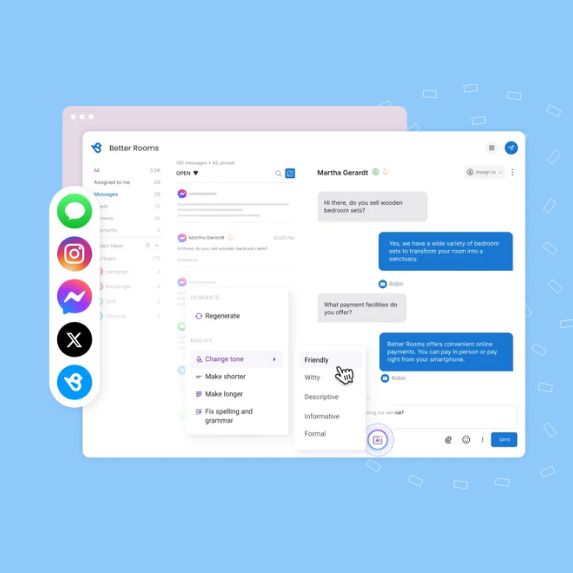
The ideal retail marketing platform must:
- Integrate with your CRM to identify various segments of the audience and help launch the engagement campaigns
- Help manage every customer interaction with reports and historical data
- Support multi-channel campaigns without excessive setup or integrations
Appointment management
An appointment management system can be game-changing for high-end retail businesses that pre-book time slots. This way, you can avoid delays and crowded waiting rooms and better prepare to close the sale for your business.
Using a comprehensive retail marketing platform that integrates appointments into its working ensures that you can:
- Track the revenue made from appointments
- Target marketing campaigns to recurring customers
- Identify potential sales and marketing opportunities from appointment-based sales models
Payment collection and management
Flexible payment options, easy payment collection, and multiple payment modes are feathers in a retail business’s cap. And your business’s ability to extend these to your customers depends on the tools you choose.
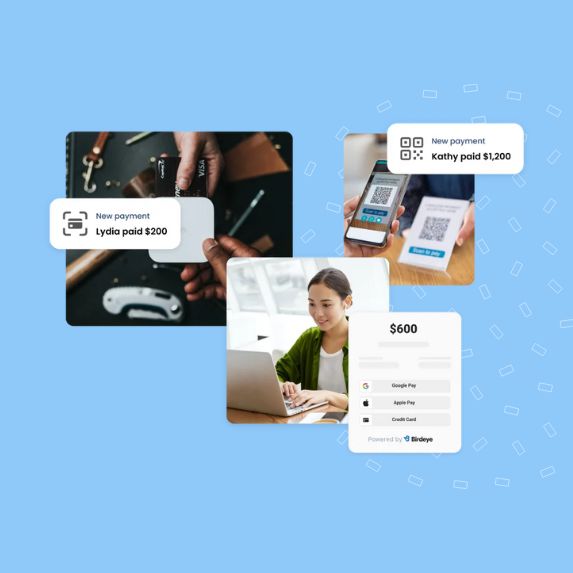
Retail marketing platforms with payment management tools improve customer experience, simplify the checkout process, and provide insights into consumer behavior.
Unlike standalone payment management tools that require integration with your CRM, messaging, or social media tools, these platforms provide a unified solution that simplifies payment processing and customer engagement.
Review management
Birdeye’s study shows that consumers rely heavily on reviews in the purchasing process. Over 90% of consumers read at least two reviews, and over 60% trust search engines and customer review sites.
Retail businesses must focus on generating and managing high-traffic generating platforms and niche-specific review sites.
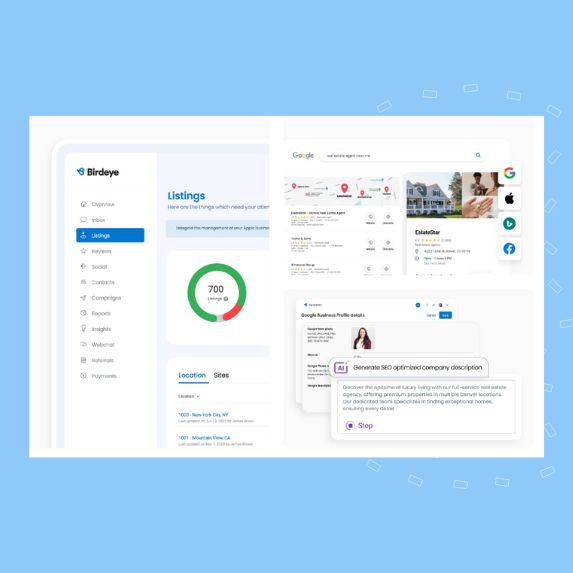
Your retail marketing platform must enable review management with:
- Easy review collection via SMS, email, web chat, and social media messaging channels
- Consistent review generation with built-in workflows for follow-ups
- Managing customer reviews across all platforms for timely review response, review moderation for spam/fake reviews, and more
- Review marketing by adding reviews to your website and sharing Google reviews on social media and other marketing channels.
- Maintaining consistency on high-traffic sources like Google Business Profile, Apple Maps listings, and Bing listings.
Grow your retail marketing business with Birdeye
Want to scale your multi-location retail business rapidly? Watch the Free Demo Now.
AI capabilities
AI is no longer a good-to-have future. It is a necessity for businesses to streamline operations, optimize their resources, and outshine their competitors in an aggressive business landscape.
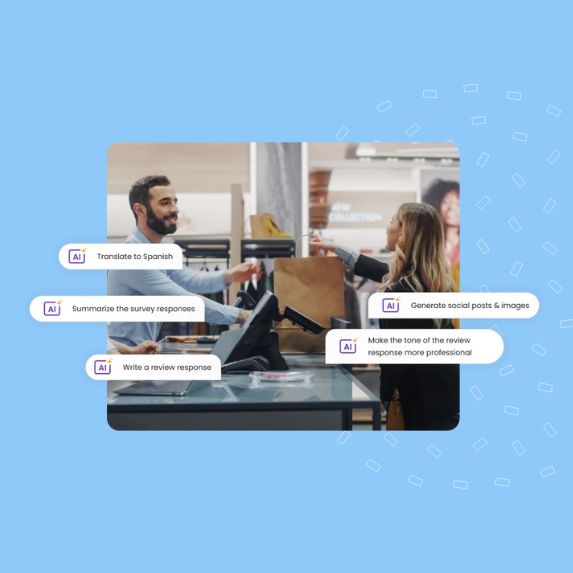
Any tool that hasn’t adopted leading technologies like Natural language processing, Large language models, and Generative AI is already behind.
AI-powered retail marketing platforms empower your business to set up self-service chatbots, generate marketing ideas, and gain advanced insights from customer data.
Insights and Analytics
One of the most significant aspects of any marketing platform is its ability to process data. Retail marketing tools must generate intuitive reports and provide business-specific insights across touchpoints.
A comprehensive retail marketing platform with a strong reporting capability can be a game-changer. You can stop relying on third-party data or spending additional money on customer research.

Your retail marketing platform’s insights and analytics tools must help you:
- Segment customer data
- Understand the impact of your marketing, review generation, and customer engagement campaigns
- Measure the performance of your social media accounts
- Analyze customer sentiment
Key considerations for choosing the right retail marketing platform: 1. Business needs: Evaluate your business needs and the primary objective you want the retail marketing platform to satisfy. This should be the primary strength of your choice eventually. 2. Budget: The cost of the platform must align with your marketing/operating budget. Make sure to include training, integration, and other onboarding costs. 3. Team expertise: Your platform must align with how well your team is trained. If it is a new platform, ensure you choose something your team can understand and operate to its full potential. 4. Integration capabilities: While your retail marketing platform may not have all the features, it should integrate well with the other tools you use. 5. Customer support: Pick platforms that provide individual customer support agents, 24x7 support facilities, and more.
Retail marketing platform examples for multi-location businesses
Curious about retail marketing platforms? Let’s explore some popular examples, such as Birdeye, Shopify, MailChimp, and Salesforce.
Birdeye
Birdeye is a comprehensive platform that helps retailers deliver an exemplary customer experience. The platform contains tools for managing online reputation, social media presence, customer engagement, and overall experience.
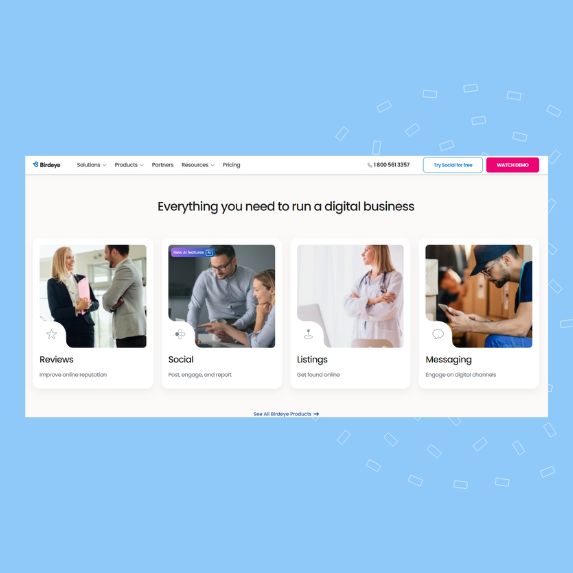
Retailers can utilize Birdeye as an all-in-one retail marketing platform with:
- Omnichannel communication management: Communicate with your potential and existing customers via SMS, MMS, email, social media, and voice calls from a unified inbox.
- Sales easement: Reduce the friction in the sales process with local listing management, easy appointment booking systems, and integrated payment management tools.
- Collect, analyze, and manage customer feedback: Collect end-of-purchase surveys, product surveys, and more to improve customer experience and ensure customer satisfaction.
- Manage online reputation: Birdeye collects, manages, and markets customer reviews. It harnesses the power of positive reviews to build trust and credibility in the market.
- Manage multi-location social media: Ideate, create, schedule, and manage multiple social media accounts from a centralized dashboard.
- Analysis of customer insights: Understand customer sentiment, monitor social media feeds, analyze customer feedback (NPS, CSAT, and more), and measure location and brand-wise performance.
- Customer advocacy programs: Automate referral marketing campaigns to turn happy customers into brand advocates. Generate trackable referral codes and rewards to run a successful referral program.
Birdeye provides retailers with a holistic platform and end-to-end solutions. It also integrates with 3000+ systems so businesses can be up and running without a steep learning curve.
Shopify
Shopify can work as a retail marketing platform with the right integrations. With Shopify, retail businesses can:
- Build a strong identity by curating compelling product collections and building brand-specific online stores
- Use the integrations available for email, social media, and SEO to boost the visibility of the brand
- Offer personalized experience via exclusive offers, customer segmentation, and targeted campaigns.
- Utilize the built-in reporting and analytics module to generate data-driven insights

Shopify is a popular brand for retailers. However, it can be expensive and difficult for retail businesses to make the most of it without a dedicated team.
Mailchimp
A popular email marketing platform, Mailchimp also has features retailers can utilize to boost their retail marketing efforts. Some of the most significant retail marketing abilities of Mailchimp include:
- Customer segmentation and behavior analysis for targeted marketing campaigns
- Automated workflows for personalized email campaigns to engage the audience
- Website user conversion efforts with landing page creation and versatile target options
- Basic CRM functionalities to manage customer data
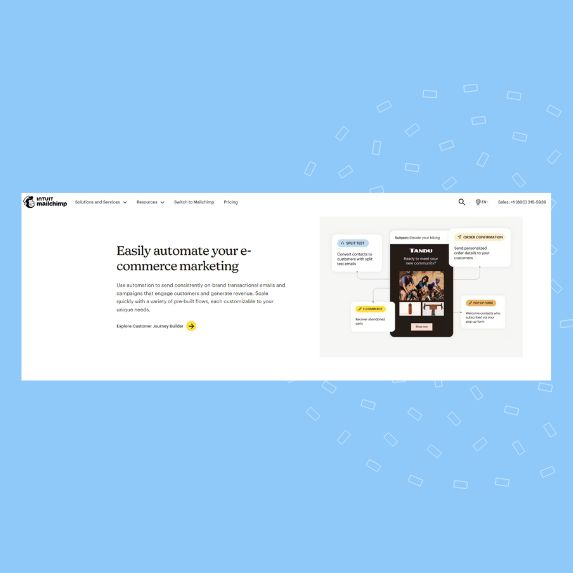
Mailchimp can be a valuable addition to your retail marketing efforts if your focus is just on email marketing. For a broader approach, businesses must seek integrations with other platforms.
Salesforce
Salesforce is primarily a CRM platform but is also versatile enough for retail businesses to leverage to grow their marketing efforts.
This platform helps businesses with the following:
- Customer data analysis, user segmentation, and customer behavior analysis
- Personalized interactions via cross-channel insights to deliver a tailored experience to customers
- Campaign performance evaluation and optimization according to business objectives
- Workflows and standards to optimize sales performance
- Improved customer service

While Salesforce can be a capable partner in sales optimization, it still lags behind in marketing automation.
Frequently asked questions on retail marketing platforms
Some examples of retail marketing are influencer marketing, social media campaigns, advertising, public relations, in-store promotions, billboard ads, and newspaper ads.
The 7Ps of retail marketing are product, price, place, promotion, people, processes, and physical evidence. While the first four are common to all marketing strategies, the last three are significant in retail marketing.
A retail marketing manager develops marketing strategies and closely works on executing them efficiently to improve the brand’s reach to the target audience, positively impacting revenue and growth.
The right retail marketing platforms can uplift retail businesses
In today’s fiercely competitive retail landscape, a retail marketing platform has evolved from a luxury to a necessity for multi-location businesses. These platforms help centralize marketing operations, optimize marketing efforts, and drive sales growth.
The right platform can help you manage many facets of your retail business from a unified dashboard. Businesses must choose the platform based on the features available, budget, team expertise needed for learning, and integration capabilities.
Transform your multi-location retail business with Birdeye
A robust retail marketing platform is not just about staying competitive; it’s about transforming your business into a customer-centric powerhouse. With intuitive products and strategic insights, your multi-location retail business can elevate the brand, win over customers, and succeed in the dynamic market.
These goals become more important and challenging as your retail brand becomes a multi-location business. And that is where Birdeye steps in!
Birdeye has many tools to attract, convert, and delight retail customers. With 3000+ integrations, AI-powered solutions, and a growing product base, Birdeye is the best choice for your growing retail brand.
Everything you need in one platform so that you can plug in and focus on growing your brand.
Watch a free demo to learn more!

Originally published
